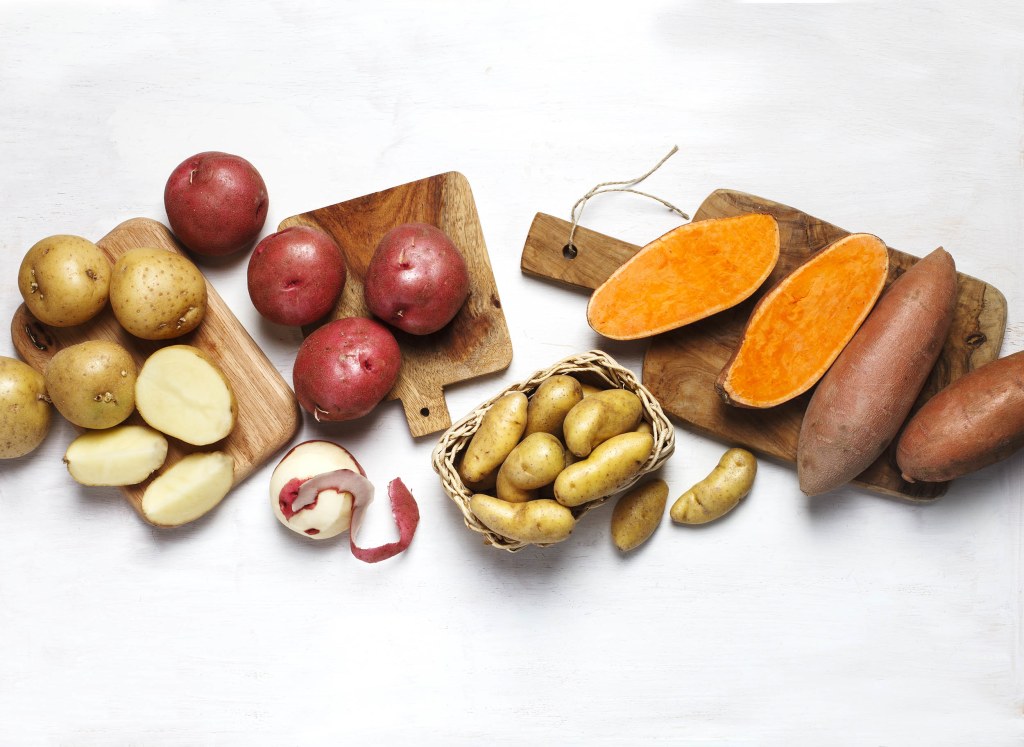As pet owners, we're continuously on the lookout for ways to improve our hairy friends' well-being. One regularly neglected fixing that can make a critical impact on pet nourishment is potato protein powder. This flexible and nutrient-rich supplement has been gaining footing in the pet nourishment industry, and for good reason. In this comprehensive guide, we'll investigate the benefits of potato protein powder, its applications in pet diets, and how it compares to other protein sources.

The Nutritional Powerhouse: Understanding Potato Protein
Potato protein is derived from potatoes through a meticulous extraction process. Unlike potato meal or general potato powder, which are made from whole potatoes, potato protein powder is a concentrated form of the protein found in potatoes. This makes it an excellent source of essential amino acids for pets.
The protein substance in potato protein powder is impressive, ordinarily extending from 70% to 90%, depending on the extraction strategy. This high protein concentration makes it an appealing elective to animal-based proteins, particularly for pets with particular dietary needs or sensitivities.
One of the key preferences of potato protein is its amino acid profile. It contains all basic amino acids that pets need for ideal wellbeing, including lysine, methionine, and threonine. These amino acids play significant parts in different bodily capacities, from muscle improvement to resistant framework support.

Incorporating Potato Protein into Pet Diets: Benefits and Applications
The flexibility of potato protein powder makes it an excellent expansion to different pet nourishment details. Whether you're a pet nourishment producer or a pet owner looking to supplement your pet's diet, understanding the benefits and applications of potato protein can help you make educated choices.
One of the essential benefits of potato protein is its hypoallergenic nature. Numerous pets endure from nourishment sensitivities or sensitivities, regularly activated by common animal proteins like chicken or beef. Potato protein offers a reasonable elective for these pets, giving the essential protein without the risk of allergic responses.
For pet food manufacturers, potato protein powder can be an invaluable ingredient in formulating specialized diets. It's particularly useful in creating grain-free or limited ingredient diets, which are increasingly popular among pet owners seeking to address their pets' specific nutritional needs.
The inclusion of potato protein in pet food can also contribute to improved coat health and skin condition. The amino acids found in potato protein, particularly methionine and cysteine, are essential for healthy skin and coat growth. Pet owners may notice a shinier, healthier coat in their animals when potato protein is incorporated into their diet.
Another compelling application of potato protein is in weight administration diets for pets. As obesity becomes a developing concern in pets, high-protein, low-fat diets are becoming more predominant. Potato protein powder fits impeccably into this specialty, advertising a high protein substance without the included fat frequently found in animal-based protein sources.
For active or working dogs, potato meal can be an excellent supplement to support muscle development and recovery. The branched-chain amino acids (BCAAs) found in potato protein are crucial for muscle protein synthesis and repair, making it an ideal addition to the diets of athletic or working animals.

Potato Protein vs. Other Protein Sources: A Comparative Analysis
While potato protein offers numerous benefits, it's essential to understand how it compares to other protein sources commonly used in pet food. This comparison can help pet owners and manufacturers make informed decisions about incorporating potato protein into pet diets.
Compared to animal-based proteins like chicken or fish meal, potato protein is generally lower in fat and calories. This makes it an excellent option for pets that need to maintain or lose weight. However, it's worth noting that animal proteins often have a more complete amino acid profile and may be more palatable to some pets.
When compared to other plant-based proteins like soy or pea protein, potato protein holds its own in terms of protein content and digestibility. It's often considered more hypoallergenic than soy, making it a preferable choice for pets with sensitivities. Additionally, potato protein doesn't contain the anti-nutritional factors found in some legume-based proteins, which can interfere with nutrient absorption.
One unique advantage of potato protein over both animal and other plant-based proteins is its neutral flavor. This makes it easier to incorporate into various pet food formulations without significantly altering the taste, which can be particularly beneficial when creating specialized or prescription diets.
It's important to note that while potato protein is an excellent supplement, it shouldn't completely replace animal proteins in a pet's diet. A balanced approach, combining different protein sources, is often the best way to ensure pets receive a full spectrum of nutrients.
When considering potato powder for your pet's diet, it's crucial to source high-quality products. Look for potato protein powders that have been properly processed to remove any potential harmful compounds and ensure maximum nutritional value. Reputable suppliers will provide detailed information about their extraction methods and quality control processes.
As with any dietary change, it's advisable to introduce potato protein gradually into your pet's diet. This allows you to monitor for any potential digestive issues or allergic reactions, although these are rare with potato protein. Always consult with a veterinarian before making significant changes to your pet's diet, especially if your pet has existing health conditions or dietary restrictions.

Conclusion
In conclusion, potato protein powder represents a valuable addition to the world of pet nutrition. Its high protein content, excellent digestibility, and hypoallergenic properties make it a versatile ingredient for both commercial pet food manufacturers and pet owners looking to supplement their pets' diets. By understanding the benefits and applications of potato protein, we can make more informed decisions about our pets' nutrition, ultimately contributing to their health and longevity.
For those interested in learning more about potato protein and other natural ingredients for pet nutrition, HJHERB Biotechnology offers a wide range of high-quality, natural ingredients for various animal industries. With over a decade of experience in producing and manufacturing natural ingredients, HJHERB is committed to providing specialized nutraceutical and functional benefits to the pet food industry. For more information or to request free samples, please contact us at info@hjagrifeed.com.
References
Pots, A. M., Gruppen, H., van Dieijen, F., van der Lee, A., Boeriu, C. G., & Wijngaard, H. (2010). The effect of storage of whole potatoes of three cultivars on the patatin and protease inhibitor content; a study using capillary electrophoresis and MALDI-TOF mass spectrometry. Journal of the Science of Food and Agriculture, 90(10), 1541-1549.
Bártová, V., & Bárta, J. (2009). Chemical composition and nutritional value of protein concentrates isolated from potato (Solanum tuberosum L.) fruit juice by precipitation with ethanol or ferric chloride. Journal of Agricultural and Food Chemistry, 57(19), 9028-9034.
Bártová, V., Bárta, J., Brabcová, A., & Zdráhal, Z. (2015). Amino acid composition and nutritional value of four cultivated South American potato species. Journal of Food Composition and Analysis, 40, 78-85.
Waglay, A., & Karboune, S. (2016). Enzymatic generation of peptides from potato proteins by selected proteases and characterization of their structural properties. Biotechnology Progress, 32(2), 420-429.
Ralet, M. C., & Guéguen, J. (2000). Fractionation of potato proteins: solubility, thermal coagulation and emulsifying properties. LWT-Food Science and Technology, 33(5), 380-387.










